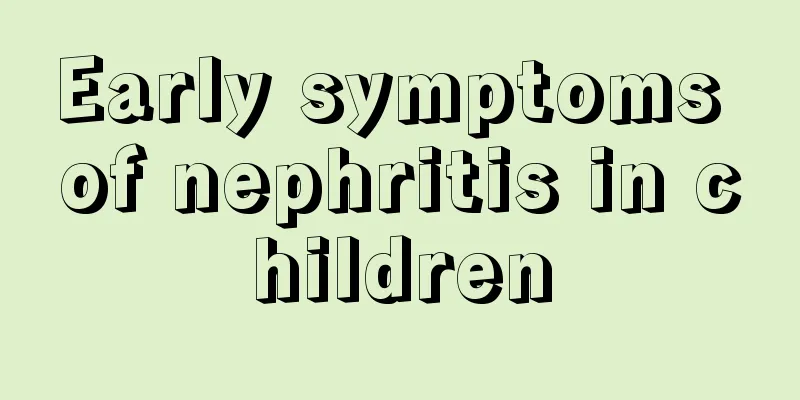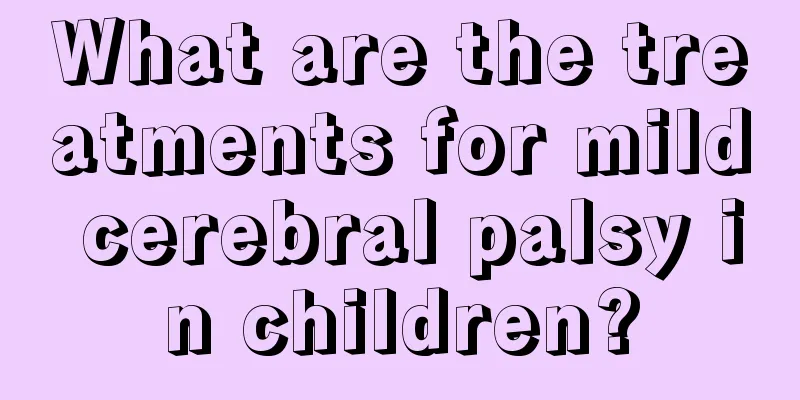What causes a baby's heart murmur? The truth is this

|
Many young parents, due to lack of relevant knowledge, become very nervous when the doctor tells them that their baby has a heart murmur. This signal is definitely abnormal, but it may not be very serious because there are many reasons that may lead to this situation. 1. Heart murmur is an abnormal heart sound signal that occurs during the cardiac cycle. There are two types of murmurs. One type of murmur is called "physiological murmur". The murmur is soft, usually not exceeding grade II, and is not conducted. It is often heard at the apex of the left chest or the second intercostal space on the left edge of the sternum. It is usually more obvious when children have a fever, cry, or exercise vigorously. This heart murmur is not a sign of heart disease and will not affect growth and development. As age increases, heart function gradually matures and will disappear naturally. The other is "pathological murmur", which is characterized by being loud, grade II or above, not located in the apex of the heart, conducted, and with enhanced heart sounds. This murmur is a sign of heart disease and can affect a child's growth and development. In short, some children can have heart murmurs but do not have heart disease. However, for children who have murmurs and cannot be clearly judged to be physiological, it is recommended to continue with cardiac ultrasound and other examinations to determine whether there is a pathological disease. 2. Some murmurs are signs of heart disease, while others have no pathological significance. That is, some children may have a heart murmur but do not have heart disease. The murmur is caused by the enhanced vibration of blood flow in the pulmonary artery. The murmur produced by this vibration is high-pitched and soft, but not very loud, generally not exceeding grade II, and is not conducted. It is often heard at the apex of the left chest or in the second intercostal space at the left edge of the sternum. It is usually more obvious when the child has a fever, cries, or exercises vigorously, and it weakens after the fever subsides and when the child is quiet. This heart murmur is not a symbol of heart disease, nor is it a congenital heart disease. We call it a "functional murmur" or "harmless murmur", which will not affect the child's growth and development. Physiological murmurs in children usually first appear in infancy, increase in number in children aged 2 to 3 years old, and are most common in children aged 3 to 7 years old. As people age, their organ functions mature, their heart valves become more functional, and physiological murmurs disappear naturally. 3. However, some noises are loud and rough, and are transmitted in a certain direction. We call this kind of noise "pathological noise." It is common in children with congenital heart disease. It is due to the influence of certain factors during the development of the heart during the embryonic period, resulting in abnormal channels or septal defects. Because there are abnormal channels between various parts of the heart, that is, the normal channels are too narrow, when the blood circulates, the blood flows like the rushing water of the Yangtze River into its narrowed branch rivers, causing whirlpools and noise. Children with congenital heart disease will have their growth and development affected. Some will have palpitations and shortness of breath when they move a little, some will suffer from frequent pneumonia, and some will suffer from cyanosis due to lack of oxygen. In short, it is different from normal children of the same age. |
>>: How to make baby food egg custard
Recommend
What should we do if children have bloating?
Children are a relatively special group. On the o...
What to do if your baby has bad breath
The baby's physical health is an issue that p...
What to do if your baby has eye inflammation
Every child is the continuation of his or her par...
What to do if your 15-month-old baby coughs
Children's physical resistance is far inferio...
White spots on the upper teeth of newborns
Experts say that the white spots on the upper tee...
Treatment cycle and related treatment methods for neonatal sepsis
The treatment cycle of neonatal sepsis causes our...
What should I do if my baby has a thorn on his hand?
The baby's physical health is an issue that t...
What are the signs of teething in babies?
Teething is a necessary stage for babies in their...
What should I do if my baby’s feet turn outward?
When the baby is just born, the appearance needs ...
What are the symptoms of precocious puberty in children?
Children's development cannot tolerate any mi...
What should I do if my two-year-old baby has a high fever?
Some babies have health problems, so they need to...
Children have a fever and the palms and soles of their feet are hot. This method can be used to reduce the temperature
Fever is a common disease in babies in daily life...
What should I do if a little girl has dandruff?
Women all love beauty very much, and since enteri...
What to do if your baby has inverted nipples
Every mother has to be careful when taking care o...
How to use medicine for athlete’s foot in children?
The itching caused by athlete's foot is unbea...









